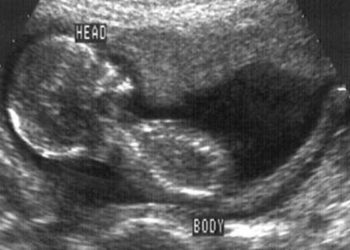Survey demonstrates broad support for medical imaging among PCPs
1. In a national survey of 500 primary care physicians (PCPs), an overwhelming majority responded that advanced imaging increases their diagnostic confidence, provides data not otherwise available, allows better clinical decision-making, increases confidence in treatment choices, and shortens time to definitive diagnosis.
Evidence Rating Level: 3 (Average)
Study Rundown: With a growing emphasis on cost-conscious care, primary care providers (PCPs) face ongoing pressure to reduce their utilization of diagnostic imaging. Despite this, little is known about their attitudes toward this common patient care tool. In this study, a large group of PCPs were surveyed to evaluate their perceptions of the role and value of advanced imaging in their practices. Researchers identified three hypotheses from pre-survey evaluations to focus on. These included whether PCPs rely heavily on advanced imaging to diagnose patients, whether they believe that advanced imaging allows earlier intervention and more targeted therapies, and whether advanced imaging reassures PCPs and their patients. Among the survey respondents, the vast majority agreed that advanced medical imaging provides data that are not otherwise available, that it allows them to make better clinical decisions, and that it allows them to be more confident in their diagnoses. PCPs additionally agreed that imaging shortens time to definitive diagnosis, and that the quality of care their patients receive would be negatively impacted without it. This study is useful in that it reinforces the utility and importance of advanced medical imaging for the physicians who are responsible for ordering said imaging, as opposed to policymakers or public opinion. The study was limited in that it may not be representative of the opinions of other physicians, rather focusing on primarily outpatient-based PCPs. It also only serves as a surrogate marker of utility for imaging, rather than providing an objective end point for evaluating advanced medical imaging.
Click to read the study in the Journal of the American College of Radiology
Relevant reading: Physicians’ views of the relative importance of thirty medical innovations
In-Depth [survey]: This study initially obtained its three main hypotheses by asking open-ended questions of 42 PCPs, and then focused on these hypotheses using a Likert response scale to evaluate provider perceptions of the utility and value of advanced medical imaging. Participants were obtained from the Harris Interactive online physician panel, identifying 2229 PCPs who were either family practice, general practice, and internal medicine physicians. These physicians were emailed an invitation to participate in the survey, with a $50 honorarium to help in a survey about “health care.” Of these, 862 responded initially, and the first 500 were chosen to participate in the survey. Physicians were divided based on their years in practice, either 1-20 or >21 years. The survey results were broadly favorable, with PCPs agreeing that imaging provides data that are not otherwise available (90%), aid in clinical decision-making (88%), increases diagnostic confidence (88%), shortens time to diagnosis (86%), and positively impacts patient care (85%). The most frequency reason PCPs ordered advanced medical imaging was to obtain “information that you can get uniquely from the study” (455 of 500, 91%). When asked an estimate of what Medicare pays for noncontrast magnetic resonance images of the brain, 204 of 500 respondents provided a mean value of $1004.68, three times the actual amount of $370.05.
More from this author: Intraarterial therapy improves outcomes in acute ischemic stroke, Meta-analysis suggests endovascular therapy improves stroke outcomes, Magnetic resonance imaging may aid detection of pulmonary hypertension
Image: PD
©2014 2 Minute Medicine, Inc. All rights reserved. No works may be reproduced without expressed written consent from 2 Minute Medicine, Inc. No article should be construed as medical advice and is not intended as such by the authors, editors, staff or by 2 Minute Medicine, Inc.







